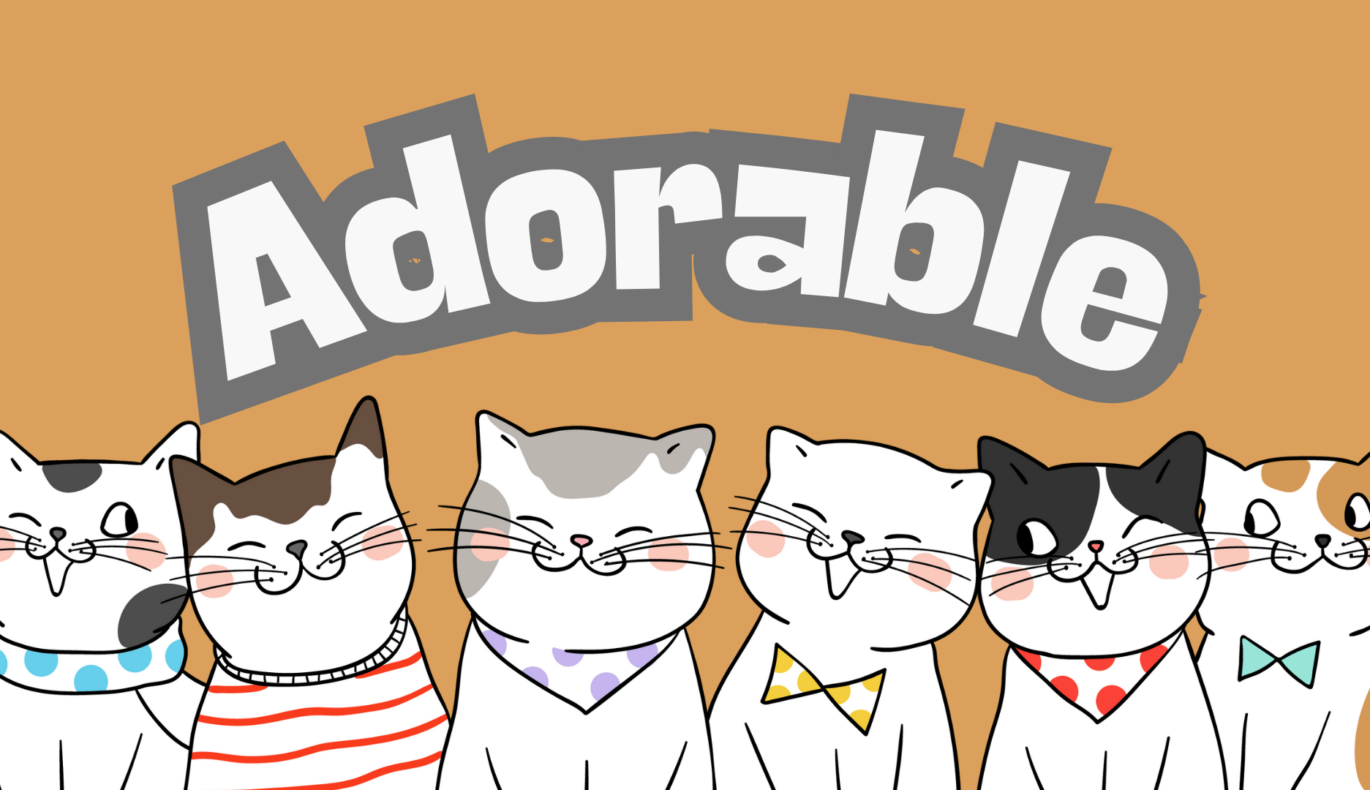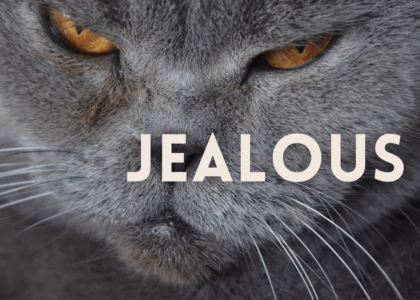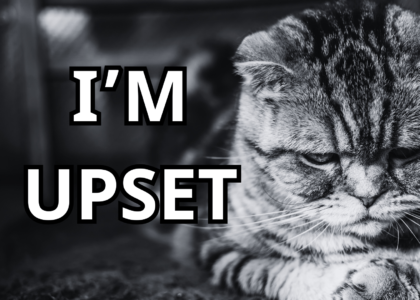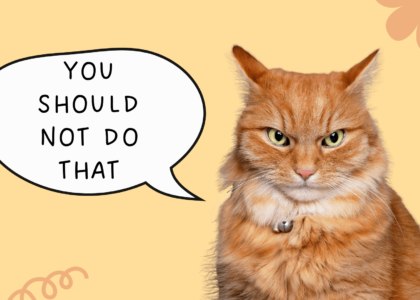You are sitting on the couch, minding your own business, when your cat jumps up next to you, flops onto its back, and stretches like it’s posing for a magazine cover. You lock eyes. It blinks slowly, flicks its tail, and somehow looks even cuter than before. You reach out to pet it, and just as your hand gets close—bam—it walks away like you don’t even exist.
This happens every day. And yet, you keep falling for it.
It makes you wonder… do they know? Do cats understand just how adorable they are? Do they turn on the charm on purpose, or are we just powerless against those tiny paws and big round eyes?
Some animals know exactly what they’re doing. A dog rolls over for belly rubs. A parrot mimics words to get attention. But a cat? A cat will knock your glass of water off the table while making direct eye contact and somehow still look precious doing it.
So what is it? Self-awareness? Manipulation? A natural talent for getting whatever they want? Today, we’re digging into the mystery of feline charm, and by the end of this video, you might never look at your cat the same way again.
If you put a cat in front of a mirror, one of three things will happen. It will either ignore its reflection like it’s beneath its attention, puff up like it just saw a ghost, or—if it’s feeling particularly ambitious—it will try to fight itself.
What it will not do is look in the mirror and say, “Ah, yes, that is me. I am an exceptionally good-looking creature.”
That’s because cats, like most animals, don’t pass what scientists call the “mirror test.” This test is designed to measure self-awareness by seeing if an animal can recognize itself in a reflection. Some animals, like great apes, dolphins, and elephants, can. Cats? Not so much. If you put a dot on a cat’s forehead and show it a mirror, it won’t reach up and try to wipe it off like a self-conscious teenager. It will either not notice or assume another cat is staring at it disrespectfully.
So does that mean cats don’t have self-awareness? Not exactly. The mirror test only measures visual self-recognition. But cats don’t rely on sight the way we do. Their world is built around scent, sound, and touch. If self-awareness means knowing what belongs to you, then a cat marking your couch, your clothes, and your entire life with its scent is a pretty strong statement.
It might not recognize its own face, but it definitely recognizes its own kingdom.
Imagine this: you’re sitting on the floor, scrolling through your phone, when your cat casually struts over and flops down next to you. It stretches just enough to expose its fluffy belly. You gasp. You tell it how adorable it is. You reach out, completely enchanted—and before you can even touch it, your cat rolls away like you just ruined everything.
Coincidence? Maybe. But what if your cat wanted that exact reaction?
Cats have spent thousands of years living alongside humans, and while they haven’t bothered to learn tricks like dogs, they have learned something arguably more powerful: how to read us. Studies show cats can recognize human emotions. They know when we’re happy, they know when we’re stressed, and—more importantly—they know how to get a response. If a certain meow gets them fed, they’ll keep using it. If a dramatic slow blink earns them a head scratch, they’ll do it again.
But here’s where things get suspicious. Cats don’t just react to our emotions—they seem to test them. Have you ever noticed how a cat will do something cute and then pause, waiting to see what you do? That little head tilt, that slight delay before the next move—it’s almost like they’re making sure you’re watching.
It’s not that they understand the concept of cuteness. It’s that they understand us. And if acting cute gets them extra snacks, extra cuddles, and extra power over their human servants… well, why wouldn’t they keep doing it?
Your cat walks into the room, tail high, eyes wide, looking at you like you’re the most important person in the universe. It meows—soft, sweet, almost desperate. Your heart melts. You stop what you’re doing. Maybe it’s hungry. Maybe it just wants affection. You reach for the treat bag. The moment you do, the meowing stops. The cat calmly watches you hand over the snack, then walks away without so much as a thank you.
Congratulations. You’ve been played.
Cats might not realize they’re cute in the way humans understand attractiveness, but they do know how to get what they want. And science backs this up. Researchers have discovered that cats use something called the solicitation purr—a special kind of purr with a frequency similar to a baby’s cry. This sound is designed to be impossible for humans to ignore. It tugs at our instincts, making us respond without even thinking.
And it’s not just their voices. The slow blink? That’s a move straight out of the “get a human to trust you” playbook. Rubbing against your leg? That’s not just affection—it’s a way of marking you as their property while also making you feel chosen. Even those perfectly timed stretches and rolls that show off their fluffiest features? Those are just well-practiced techniques to ensure they remain the center of your world.
So is it manipulation? Well, if it works every single time, if it makes us drop whatever we’re doing to serve them… then yes, maybe just a little.
A cat doesn’t need a plan. It just needs a pattern.
At first, it’s all trial and error. A kitten meows randomly, and one day, a human rushes over with food. It doesn’t know why that worked, but it files the moment away. The next time it’s hungry, it tries again. More food appears. A few repetitions later, and the cat has learned something very powerful: meowing like that controls the human.
Cats are experts at cause and effect. If stretching out on the floor makes you coo and give belly rubs, they’ll do it more often. If sitting on your laptop forces you to pay attention to them, suddenly, your laptop is their favorite seat. They don’t need to understand human emotions—they just need to know what actions get results.
And they refine their skills. If meowing at a normal volume doesn’t get them dinner fast enough, they try a sadder, more dramatic sound. If ignoring you makes you chase them for cuddles, then playing hard to get becomes part of their strategy. Some cats even learn that humans respond more to certain looks—like widening their eyes to appear extra innocent, or tilting their heads just enough to melt your soul.
It’s not manipulation in a calculating way. It’s just pattern recognition, repeated over time, until your cat has you trained without even realizing it. And the best part? You don’t even mind.
Your cat is curled up in a perfect little loaf, eyes half-closed, looking like the very definition of peace. You stare, overwhelmed by how effortlessly adorable it is. You take a picture. Maybe ten. You inch closer, reaching out, completely mesmerized. And just as your hand is about to make contact—your cat stands up, stretches, and walks away.
No explanation. No remorse. Just gone.
This is the paradox of cat cuteness. They act irresistibly adorable, they do things that make us fall in love with them daily—but do they care about our reaction? Or is it all just a happy accident?
Unlike dogs, cats don’t seek human approval. They don’t perform for praise. They don’t wag their tails when you tell them they’re a good boy. And yet… they still do things that make us shower them with affection. They still roll onto their backs. They still blink at us in that slow, affectionate way. They still meow in a voice so sweet it practically forces us to react.
Some scientists argue that it’s not about intent—it’s just natural behavior that happens to work in their favor. Others believe that after thousands of years living with humans, cats have learned just enough about us to keep us under their spell, without ever needing our validation.
So do they know they’re cute? Maybe not in the way we think. But do they know that acting a certain way makes us do exactly what they want? Absolutely.
Your cat sits across the room, staring at you with that unreadable expression—half curiosity, half mild judgment. You just spent six minutes unraveling the mystery of feline cuteness, and yet, somehow, the answer still feels just out of reach.
Do cats know they’re cute? Probably not in the way humans do. They don’t look in the mirror and admire their own fluff. They don’t practice their poses. But they do know what works. They’ve spent thousands of years perfecting the art of getting what they want, and if that means blinking at you sweetly, meowing at just the right pitch, or rolling onto their backs at the perfect moment, then so be it.Maybe the real question isn’t whether cats know they’re cute. Maybe it’s whether we know we’ve been trained to fall for it every time.






